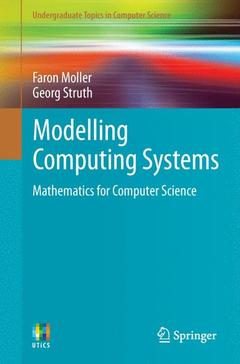Description
Modelling Computing Systems, 2013
Mathematics for Computer Science
Undergraduate Topics in Computer Science Series
Authors: Moller Faron, Struth Georg
Language: English
Subject for Modelling Computing Systems:
Approximative price 52.74 €
In Print (Delivery period: 15 days).
Add to cart500 p. · 15.5x23.5 cm · Paperback
Description
/li>Contents
/li>Biography
/li>Comment
/li>
Introduction.- Part I: Mathematics for Computer Science.- Propositional Logic.- Sets.- Boolean Algebras and Circuits.- Predicate Logic.- Proof Strategies.- Functions.- Relations.- Inductive and Recursive Definitions.- Proofs by Induction.- Games and Strategies.- Part II: Modelling Computing Systems.- Modelling Processes.- Distinguishing Between Processes.- Logical Properties of Processes.- Concurrent Processes.- Temporal Properties.
Prof. Faron Moller is a Professor of Computer Science at Swansea University, UK.
Dr. Georg Struth is a Reader in Computer Science at the University of Sheffield, UK.
Provides an elementary introduction to the mathematics and modelling of computing systems
Explores concepts of games and strategies to provide a paradigm for understanding the nature of computation
Develops a foundation for computational thinking and problem solving
Presents the topics in a clear and comprehensive style
Introduces bisimulation, Hennessy-Milner logic, and the relationship between them, at an introductory level
Includes supplementary material: sn.pub/extras

